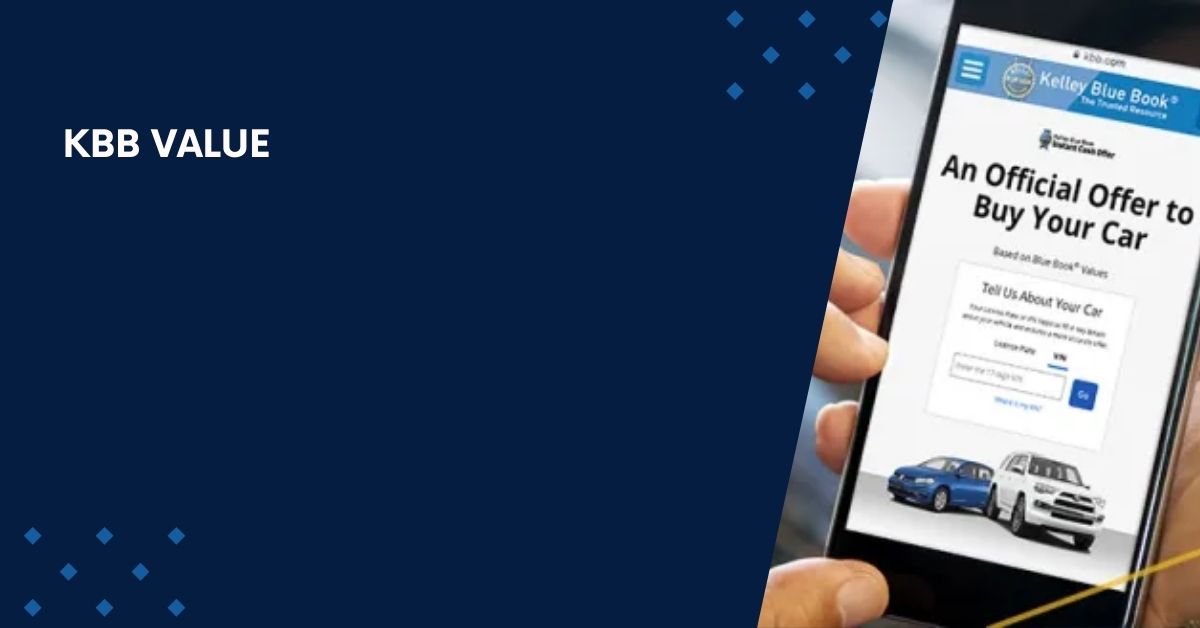Kbb Value Explained – What You Need To Know!
When I was looking to sell my first car, the Kelley Blue Book value helped me feel confident about my vehicle’s worth. It made the selling process smoother and gave me peace of mind in negotiating a fair price.
The KBB (Kelley Blue Book) value is widely recognized for helping car owners and buyers understand the true worth of a vehicle. It provides a benchmark for fair pricing, which can be a game-changer whether you’re buying or selling a car.
Knowing your car’s KBB value could mean the difference between a great deal and a costly mistake; here’s everything you need to know to make the most of it.
How to Use KBB Value When Buying or Selling a Car?
Using KBB value effectively when buying or selling a car can significantly enhance your negotiating power and ensure a fair deal.
For buyers, start by researching the specific make and model you’re interested in. This gives you a benchmark to gauge if the asking price is reasonable. When negotiating with a seller or dealership, refer to the KBB value to justify your offer, ensuring it aligns with the market standards.
For sellers, determine the value of your vehicle to set a competitive asking price. Use the KBB estimate as a reference point during negotiations to substantiate your price. Be prepared to discuss the condition of your car and any additional features that may increase its value.
How is KBB Value Determined?
KBB value is determined through extensive market research and data analysis. Kelley Blue Book collects data from various sources, including dealer sales, auction transactions, and consumer sales, to assess current market trends. This information is then analyzed alongside the vehicle’s make, model, year, mileage, and condition to estimate its fair market value. Regional variations also play a role, as KBB considers local demand and pricing trends.
KBB regularly updates its values to reflect changes in the automotive market, ensuring users receive the most current and relevant information. This comprehensive approach helps provide a reliable estimate of a vehicle’s worth.
Does KBB Value Offer the Most Accurate Car Value?
KBB value is one of the most respected resources for determining a car’s worth, but it may not always offer the most accurate value for every vehicle. While Kelley Blue Book utilizes comprehensive data, including sales trends, auction results, and market analysis, to provide estimates, the final valuation can vary based on individual circumstances. Regional demand, specific vehicle conditions, and unique features can influence the selling price.
Additionally, while KBB is a reliable guide, it’s advisable to cross-reference values with other sources, such as Edmunds or NADA, to get a more rounded understanding. Ultimately, it serves as a solid foundation for pricing, but individual factors may lead to variations in the actual market value.
Can I Negotiate Based on KBB Value at a Dealership?
You can negotiate based on KBB value at a dealership. Knowing the value of your vehicle gives you a solid foundation for discussions and can help you ensure a fair price during negotiations. Dealerships often recognize values as a standard reference, so presenting this information can strengthen your position.
However, it’s essential to be prepared for the dealership’s pricing strategy, including factors like reconditioning costs and local market conditions.
While KBB provides a guideline, the final offer may differ based on the dealership’s assessment and other variables. Being informed and confident in your negotiations can lead to a better deal.
Is KBB Value Different from Market Value?
It is different from market value. While it generally estimates a vehicle’s worth based on historical data, market value refers to the actual price buyers are willing to pay for a specific car in a given time and place. Market value can fluctuate based on current demand, regional preferences, and particular conditions of the vehicle being sold.
For instance, if a particular make and model is in high demand in a local market, its market value may exceed. Conversely, if the vehicle has unique issues or is less desirable, its market value might be lower. Therefore, while KBB is a helpful benchmark, actual market conditions can lead to variations between the two values.
What Influences the KBB Value of Your Car?
- Mileage and Age: Lower mileage and newer models generally fetch higher. These vehicles typically have less wear and tear, making them more desirable.
- Vehicle Condition: KBB value depends on how well the car has been maintained. A car in excellent condition, with minimal scratches and a spotless interior, will have a higher value than one in poor condition.
- Market Trends: Supply and demand affect KBB values. For instance, fuel-efficient cars may see a boost in value when gas prices are high, while larger trucks and SUVs may increase in demand seasonally or regionally.
- Location: Certain vehicles are more prevalent in specific areas, impacting the KBB value. A convertible might hold higher value in warmer climates, while all-wheel-drive vehicles may fetch more in regions with harsh winters.
- Add-ons and Modifications: Features like premium sound systems, leather seats, or safety enhancements can increase the KBB value. However, some modifications (like aftermarket body kits) may not add value or detract from it, depending on buyer preferences.
Tips for Maximizing Your Car’s KBB Value:
- Maintain Regular Service: Up-to-date maintenance records show that the car is well cared for and can boost its KBB value.
- Detail Your Vehicle: Clean the car thoroughly—inside and out. A well-presented car can appeal more to potential buyers and often results in a higher offer.
- Fix Minor Issues: Address small repairs like replacing a cracked mirror or fixing dents. These little improvements can significantly increase the perceived value.
- Highlight Added Features: If your car has premium upgrades, like navigation systems or advanced safety features, make sure buyers know. This can help justify a higher price.
FAQs:
How Often is the KBB Value Updated?
Kelley Blue Book updates its data weekly, ensuring its values stay current with the changing market. By factoring in recent sales and other market trends, KBB can provide a value that reflects current conditions, making it a reliable tool for buyers and sellers alike.
Does KBB value consider accident history?
KBB value does consider accident history when determining a vehicle’s worth. A car in an accident may have a lower value due to potential structural damage, reliability, and resale appeal concerns.
Why might my KBB value be lower than expected?
Your KBB value might be lower than expected due to factors like the vehicle’s condition, accident history, high mileage, low market demand, regional differences, outdated features, or seasonal pricing trends.
Does KBB value include taxes and registration fees?
No, it does not include taxes and registration fees.It reflects the estimated market price of the vehicle itself, while taxes and registration fees are additional costs that buyers must consider when purchasing a car.
Conclusion:
The Kbb value is invaluable for anyone looking to buy, sell, or trade in a vehicle. By understanding the factors that influence using them strategically, you can negotiate confidently and maximize your deal’s fairness.
Whether you’re at a dealership or selling privately, having the KBB value gives you a reliable basis for making informed decisions in the car market.
Read more:






